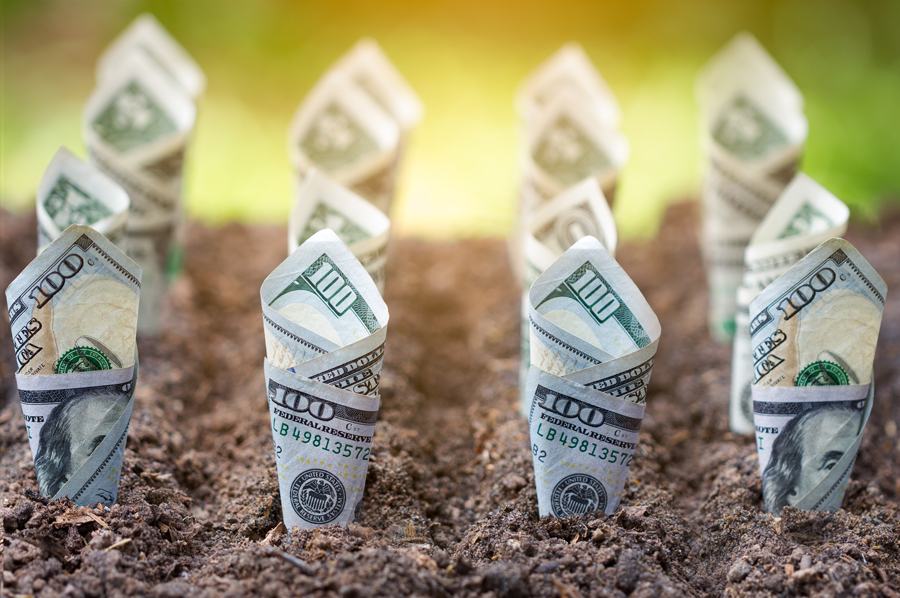In honor of National Safety Month we want to talk about financial safety. When we say financial safety, we're talking about several different aspects of this part of your life. First off, there's the obvious part of protecting yourself from dangers like credit card fraud and identity theft. But financial safety is more than that. It means making certain that your credit is healthy, not just because there's no fraud, but because you take measures in your own life to build up healthy credit. Financial safety is about getting out of debt and saving for the future. Let's take a look at some steps you can take for better financial safety in your life.
Ways to Debt Proof Your Summer
Reducing your debt load is a great way to focus on having a lot of fun while keeping your financial plan on track. With a little bit of ingenuity, you can debt proof your summer and still have a great time. Here are some of the best ways to do that, and the areas you'll want to consider in order to make the most of summer fun on a budget.
How to Navigate Secured Creditors During COVID-19
All across the country people are feeling not just the pressure of a global pandemic, but also that of an economy in free fall. If you are one of the tens of millions of Americans who have lost their jobs in the last two months, or one of the many who has been forced to reduce hours or cut back on work to protect your health and others, you are likely struggling to figure out how you will pay your bills. Fortunately, right now many institutions are providing some breathing room during this time. Here are some options for those who are grappling with making payments right now.
Staying Healthy and Sticking to Your Budget During the Coronavirus
Recently designated as a global pandemic, the novel coronavirus (COVID-19) is already disrupting our daily lives and is expected to continue to do so in the weeks and even months ahead. In addition to worrying about the health and safety of family and friends, people are also rightfully concerned about their financial wellbeing. While these fears are natural, there’s good news, too: There are some steps you can take to stay safe and prepared through this public health crisis.
Maximize Your Tax Refund
If you're getting a tax refund, maximizing it can be really important for your financial future. But how should you do that? The best way is to have a plan, so you don't spend your refund on something that doesn't give you the biggest benefit. If you have a financial plan to adhere to, you probably already know where your taxes are going. But if you don't have a plan worked out, it's time to create one before you spend that refund check. Future you will be thankful.
The Dangers of Retail Therapy
When you’re feeling stressed by what’s happening at your job, with your family or in the world today, what makes you feel better? For many, shopping can become a source of comfort in times of emotional stress. In fact, there is a name given to this: “retail therapy.” Is there really anything wrong with using shopping as a way to soothe your emotions? Let us explore some of the dangers of retail therapy.
Spring Cleaning, Spring Savings
It’s nearly time to start spring cleaning. With some planning, you can save a bunch of money, or even make some money while you’re doing this chore. Any of these tips and tricks or a combination of two or more could save you money – or even allow you to get “paid” for cleaning your own home.
Managing Your Subscriptions
With the popularity of the digital world, a lot of applications and entertainment options are moving over to a subscription-based model. That can be a great option for something that's used frequently, but it's not so good on your budget if you have a lot of subscriptions and you aren't using them for anything. Fortunately, there's a way to fix that. By taking a look at the subscriptions you have, canceling what you don't use, and getting any necessary help to do that properly and efficiently, you can save yourself a lot of money. Here's what to consider.
50/30/20 - An Easy Way to Budget
Budgeting can be a tricky thing for many people, especially if they don't have the time or energy to carefully keep track of each penny. Those who would prefer a simplified version of the process may find luck with the 50/30/20 rule.
The 50/30/20 rule is a great way to roughly categorize and control your spending, so you can start building toward the financial future you want. As 2020 begins , there's no better time to explore alternative solutions to curb your spending.
Decorate Your Home; Don't Drain Your Wallet
The holidays are upon us and it's time to start thinking about holiday decorations. If you go to the store, you might find that decorations are on the pricey side. That's not good when you are trying to save money for something special or because you just don't have the extra money for decorations this year.
However, your house doesn't have to go naked for the holidays and you don't have to spend outlandish amounts on decorations. Decorate on a budget with beautiful homemade decorations.
















